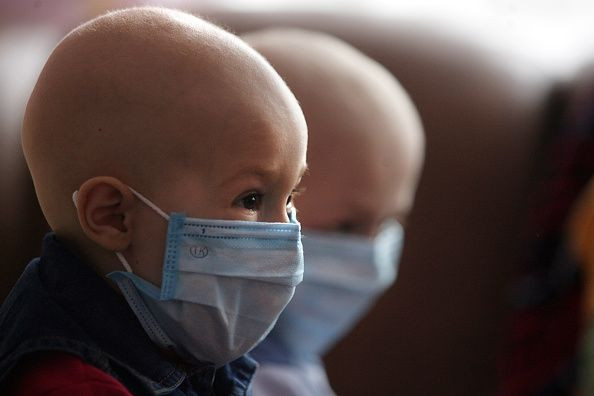Identical Twins Diagnosed With Same Rare Cancer; Case May Reveal Disease’s Genetic Roots

A pair of five-year-old identical twin brothers living in Michigan were both diagnosed with the same rare form of leukemia within days of each other. Although tragic, the twins' case may also help us better understand the mysterious link between cancer and genetics.
The two brothers were both diagnosed with T-cell acute lymphocytic leukemia with 13 days of each other, The Daily Mail reported. The cancer risk for an identical twin of a child with leukemia is significantly higher than the risk for any other sibling or a fraternal twin, said Mott pediatric oncologist Dr. Rama Jasty Rao, Medical Xpress reported.
The risk of developing leukemia for the twin of a child with the disease is higher for the more common B-cell acute lymphocytic leukemia (ALL) — for 80 to 85 percent of children with ALL, the leukemia starts in B cells. However, Zane and Zac have the rarer T-cell ALL, which, according to Rao, makes the double diagnosis even more shocking.
Cancer is ultimately caused by abnormal cell function, and according to the American Cancer Society, certain types of cancers can run in families. In the case of the twins, it may be that they inherited a gene mutation that was present in the egg or sperm that formed the child. Still, while we know that there are genetic factors to cancer, it's unclear where they begin.
"The odds of both twins getting this type of cancer at age 5 are so small. It was very unexpected," said Rao, reported Medical Xpress. "Taking care of one child with leukemia is intense enough. To have two kids diagnosed at the same time, it's unbelievable."
The twins are doing well, and both are responding well to chemotherapy treatments. In addition, the boys’ parents have also donated their son’s umbilical cord blood for pediatric cancer research in the hopes that it may reveal just how genetics contribute to cancer development.
"Because they are twins, samples of their cord blood shed a lot of light on how genetic factors may contribute to cancer development," added Rao. “We know these abnormalities started in utero but just now transformed to full blown leukemia, so we can study the pathways of how and why this happened.”
Read More:
Cancer Treatment Breakthrough: Researchers Engineer A Way To Make Leukemia Cells Kill Each Other: Read Here
Leukemia Treatment Breakthrough: Previously Untested Cell Therapy Saves Baby With 'Incurable' Cancer: Read Here



























